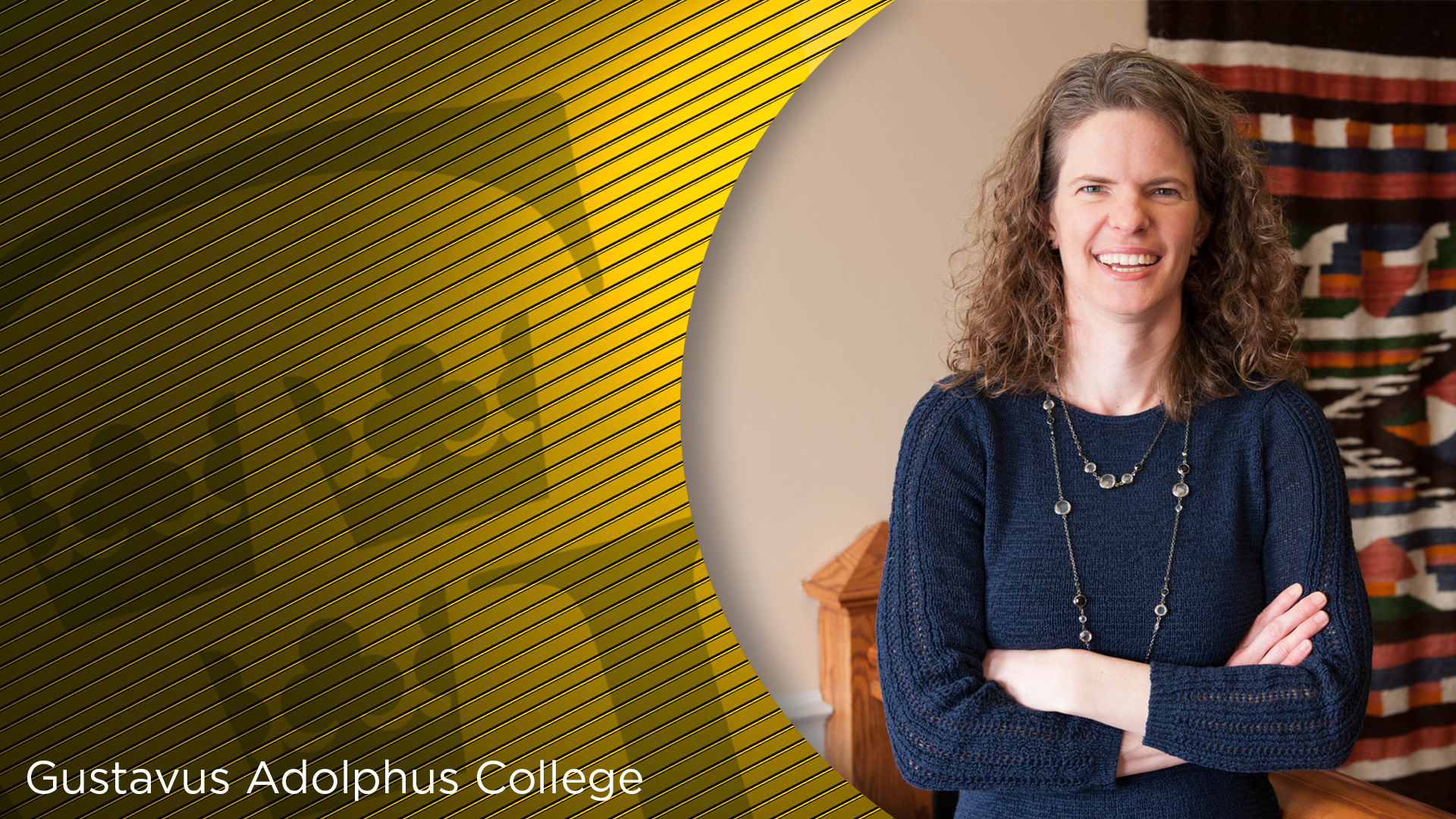Three years ago, Gustavus Adolphus College professor Sarah Ruble was glued to her television, watching with a mix of horror and concern as violent white nationalist rallies swept through Charlottesville, Virginia. As a religion professor who studies how Christianity and society have influenced each other throughout the nation’s past, she began to think about history and religion’s complicated relationship with race in the United States.
As Ruble wrestled with the complicated situation in Charlottesville and the circumstances that led to the rallies, an idea began to form: she would create an “Adult Sunday School” series focusing on Race and Christianity in the United States. As an expert in 19th- and 20th-century evangelical Protestantism with a master’s from Duke Divinity School and a doctorate from Duke University, the series would allow her to bring her academic expertise to a broader audience.
“In the days after Charlottesville I was thinking a lot about those dynamics,” Ruble said. “I’m not really known as a scholar of race and Christianity, but I know how to put together a narrative in a way that’s easy for non-experts to understand. I am also a Christian so I know how some of the discussions in white Christian spaces go surrounding race.”
The result? A series of eight 20- to 30-minute videos covering topics ranging from race, slavery, and Christianity in Colonial America to Civil War and Reconstruction to the Civil Rights Era and more. Each episode comes with an outline, discussion and reflection questions, and sources for further reading.
Ruble was intentional about not shying away from the uncomfortable truths that can arise when studying history.
“Unlike what I had been taught in elementary school, the Civil Rights movement was not popular with people like me (white, middle-class Christians),” Ruble said. “What I try to do in these videos is talk about what it was like for me to learn this history when I was in college and grad school and grapple with it myself.”
Since the murder of George Floyd this summer, Ruble sees her work as even more timely and important.
“It’s really emphasized that this is an ongoing problem. In terms of the history I bring to it, it doesn’t change how I think about that. But it’s really raised awareness in the public that racism a process. One of the theses of the project is that systemic racism is real, and I know George Floyd brought that to awareness for people,” Ruble said.
While this kind of curriculum would normally be sold, Ruble chose to offer her work for free because of her understanding of how tight church budgets can be.
“I know a lot about churches‒there are churches that have lots of money, but there are a lot of churches that have no budget. I wanted to make this available at no cost so they can use it. There’s not a lot of solid, free resources out there, so I wanted to make this have as low of an entry barrier as possible,” Ruble said.
She noted that while she might show a video occasionally to her students at Gustavus, they are not her primary audience. Rather, Ruble made the videos with the primary goal of educating white Christians about this important history and inviting them to grapple with it individually and in their church communities. She also hopes that her work will make the topic more accessible to anyone who is interested in learning it.
“I’m still learning this history,” Ruble said. “I don’t have all the answers to my own questions, that’s part of it, too. I learned this as an adult, and had to think through what it means to me.”
The Race and Christianity in the United States series and associated content is available to all who are interested at sarahruble.com.

Leave a Reply
You must be logged in to post a comment.